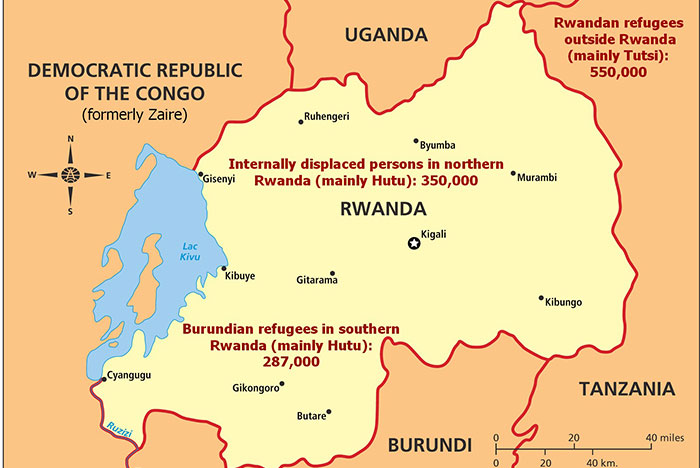BY KATE REYNOLDS – SCHOLARSHIP WINNER
Language Holds Power
I have learned this fundamental lesson firsthand, as a reporter for my school newspaper. Writing about politics and current events for the newspaper has taught me the power of journalism in shedding light on misunderstood experiences and traditionally silenced voices. I’ve realized that what I write influences my peers’ opinion of the news, a power that has made me choose my words carefully.
Studying the Rwandan Genocide
I fully realized the power of the language we use in 8th grade while studying the Rwandan genocide for Model United Nations. One reason violence was so accepted by many Rwandans was because of anti-Tutsi government propaganda. I listened with shock and horror to radio broadcasts that employed this propaganda and aggressively advocated for violence, through language like “exterminate the cockroaches” and “the graves are still not full; who will fill them?”

Supporters of Hutu Power, the ideology espoused by many Rwandan political elites at the time, used this rhetoric to portray Tutsis as outsiders who needed to be removed from Rwandan society. This made me realize how crucial language was to Rwanda’s genocide.
Spending my 8th grade researching Rwanda was a learning experience that transformed my perceptions of human nature. The violent language was one of many warning signs in the genocide’s preceding months, yet this sign, like countless other red flags, largely went ignored by the international community.
Some of the only people paying attention to Rwanda were journalists, who reported on Rwanda’s civil war, the rise of Hutu Power, and growing Hutu-Tutsi tensions. These reporters were tragically not enough to point international attention towards Rwanda, but they did show me that investigative journalism can expose injustices and prevent tragedies.
Learning about Rwanda sparked my interest in ethnic conflict and genocidal violence.
The international community’s failures to act and the traumas inflicted upon Rwanda made me wonder why violence occurs, how nations gauge the risks of intervention, and how colonialism continues to haunt Africa today. Since 8th grade, I have consumed information about Rwanda, genocide, and ethnic violence wherever I can.
Because of this, Rwanda is the country that I want to visit the most. I want to witness first-hand how it has transformed in the quarter-century since its darkest chapter. I hope to record oral histories with survivors of the genocide and place the experiences of these survivors at the heart of my research. My long-term goal is to be an investigative journalist who reports on ethnic/tribal conflict and who helps to expose injustices and prevent human rights abuses like civil war and genocide.
I want to use the power of my language to change the world. I’ve always loved writing, which is why I joined my newspaper’s staff. I’m excited to use this scholarship to combine my love of writing with my interests in Rwanda, ethnic conflict, and postcolonial violence. I’ve seen how language was used for evil in the far-too-recent past; I want to challenge this and use language to fight for justice and improve the world.
Other Winning Scholarship Essays:
Why I Admire Malala Yousafzai
Meeting My Birth Mother
Why I Admire Winston Churchill

